To align and consolidate global AT efforts, as well as to lay the foundations for systems-level change, this sub-programme is providing a set of global benchmarks and standards for AT. This programme is being co-led by WHO, UNICEF, and the London School of Hygiene and Tropical Medicine. Partners include: CHAI, UNICEF, WHO, HelpAge International, LSHTM, Morogoro Older Persons Association, Latter Day Saints Charities, MoH Tanzania, HelpAge International
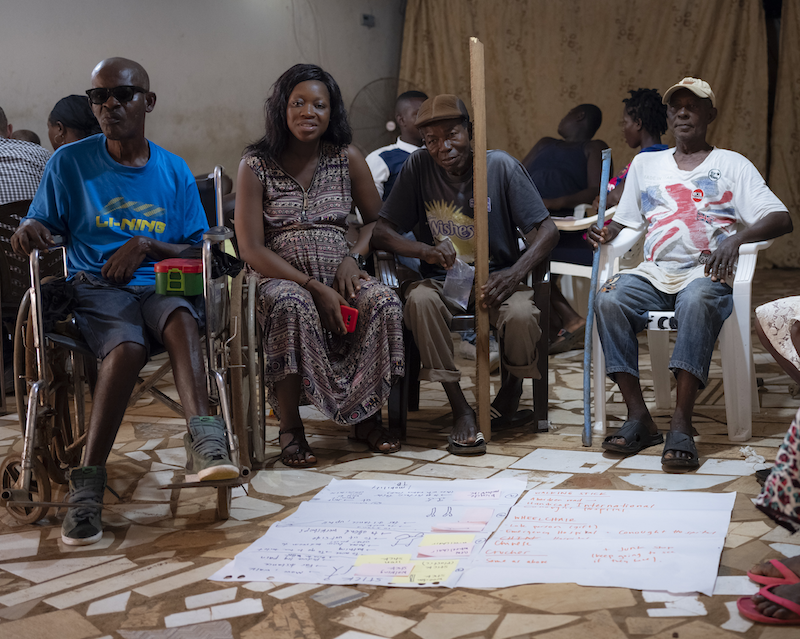
Credit - Angus Stewart
The sub-programme will develop models of integrated AT service provision, including screening and training tools; procurement tools; and a tool to identify population needs for AT. This programme is being co-led by WHO, UNICEF, and the London School of Hygiene and Tropical Medicine.
Video courtesy of WHO-GATE
Latest
-
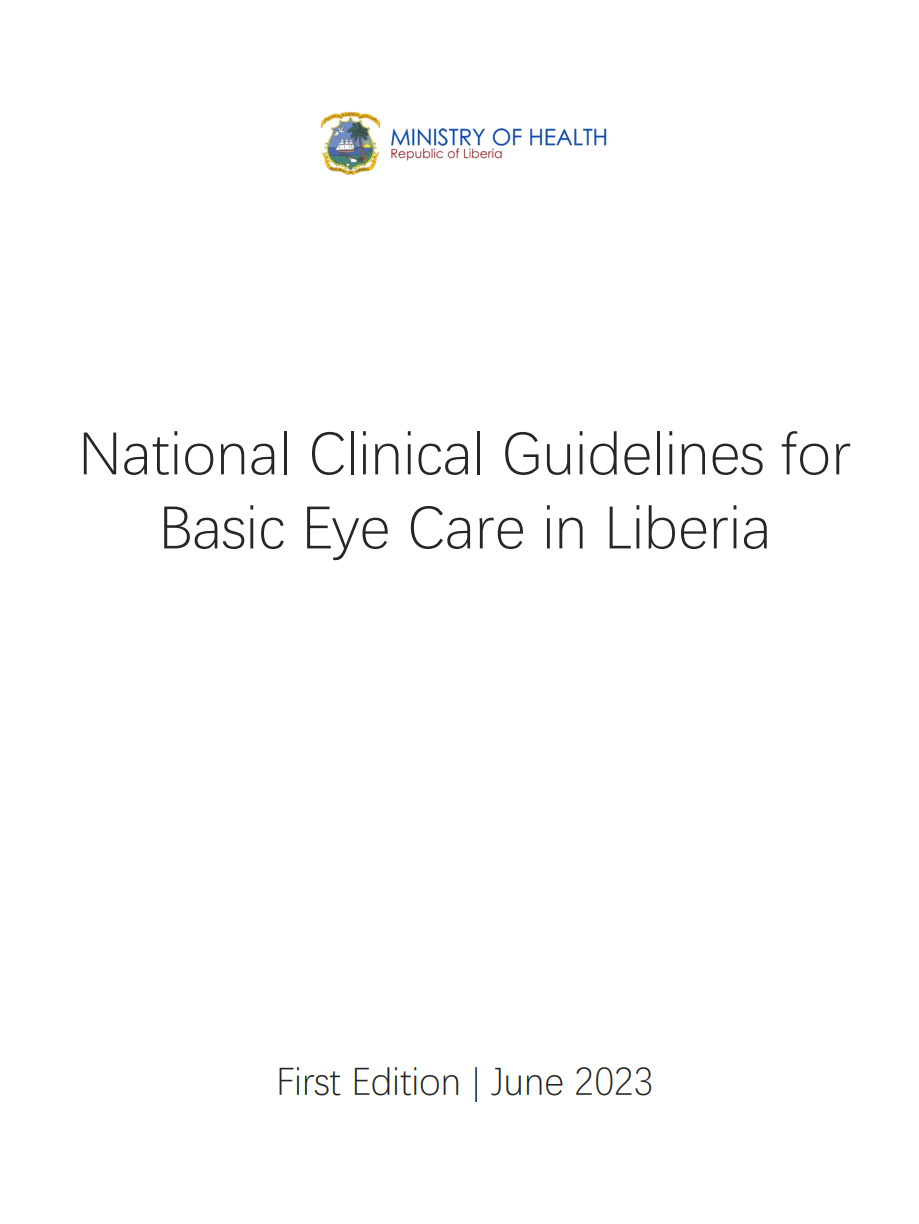
National Clinical Guidelines for Basic Eye Care in Liberia
Ministry of Health, LiberiaJune 16, 2023LiberiaCase Studies and ReportsThe purpose of the National Clinical Guidelines for Eye Care is to set out standards and clinical best practices for the provision of basic eye care and management of various eye conditions by providing first aid, non-surgical or surgical interventions, and assistive devices s for use by health workers working in the community, primary clinics, or secondary health centers. These Guidelines provide technical and clinical guidance under the umbrella of the National Eye Health Policy 2022-2032.
-
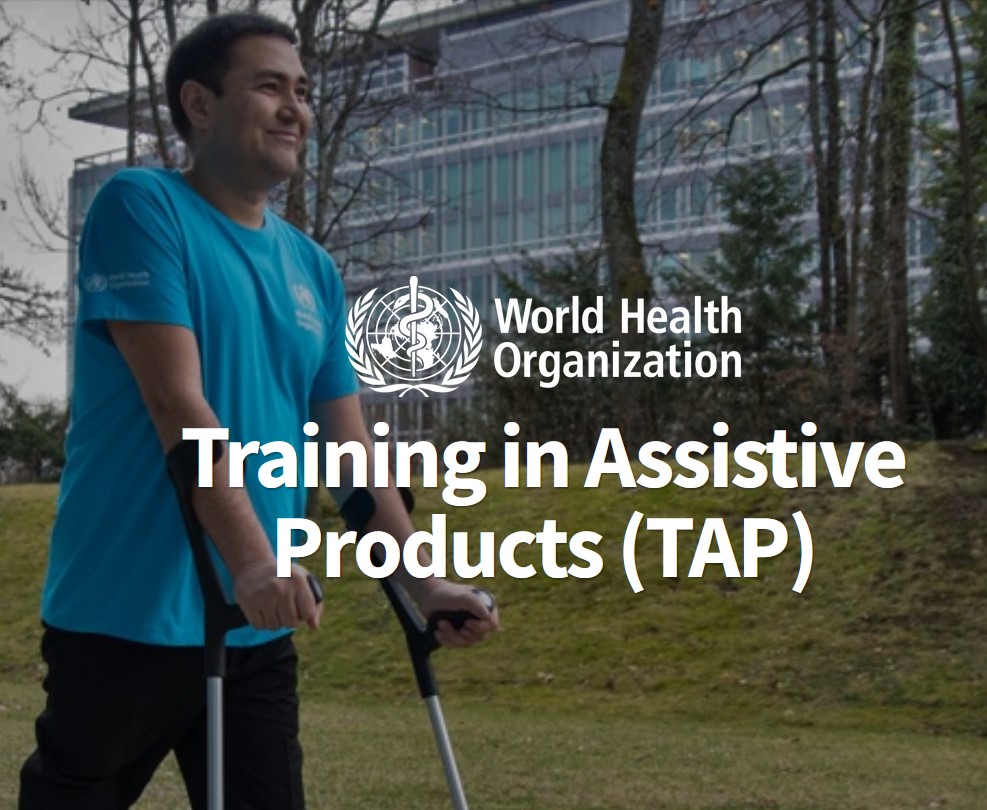
Personnel training in priority assistive products (TAP)
Global Disability Innovation Hub, World Health OrganizationMarch 29, 2023AT2030 ResourcesTrained personnel are essential for the proper assessment, fitting, user training, and follow-up of assistive products. Without these four key steps, assistive products are often of no benefit or abandoned, and may cause physical harm. Many countries however face significant challenges in deploying a workforce to implement these four steps. In order to improve access to assistive products at community- level, WHO with support from AT2030 has created the Training in Priority Assistive Products (TAP), a series of e-learning modules that will build the skills and capacity of primary healthcare workforce to safely and effectively provide basic assistive products.
-
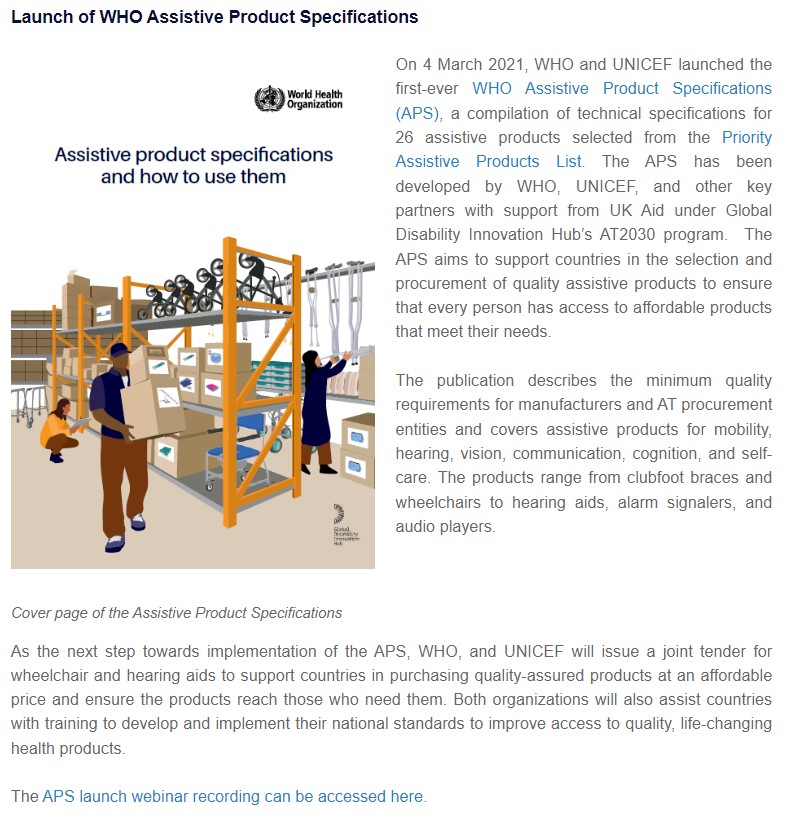
Improving access to Assistive Technology: spotlight on the Pan American Health Organization
GATE, World Health OrganizationMarch 29, 2023Case Studies and ReportsThe Pan American Health Organization/WHO Regional Office for the Americas works with the countries and territories of North America, Latin America, and the Caribbean to improve and protect people's health. The Region is making significant advances in its efforts to implement actions outlined in the WHO resolution 71.8 Improving access to assistive technology. This enews blast captures the range of activities, including those driven by AT2030 such at Training in Assistive Products.
-
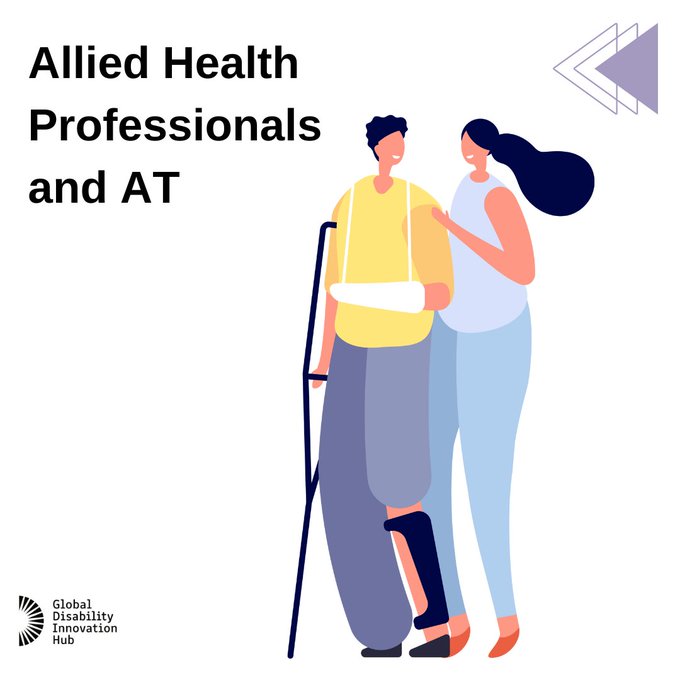
Allied Health Profession Day
Global Disability Innovation Hub, Kate MattickOct. 14, 2022United KingdomIn this blog Kate Mattick, an Allied Health Professional (AHP) and GDI Hub team member, shares her reflections on working as a physiotherapist and the challenges when people who may need AT don't have access. Kate explains who AHPs are, their role in AT delivery and how the new Training in Assistive Products, to be launched by the WHO, is so promising in creating effective AT service models.
-
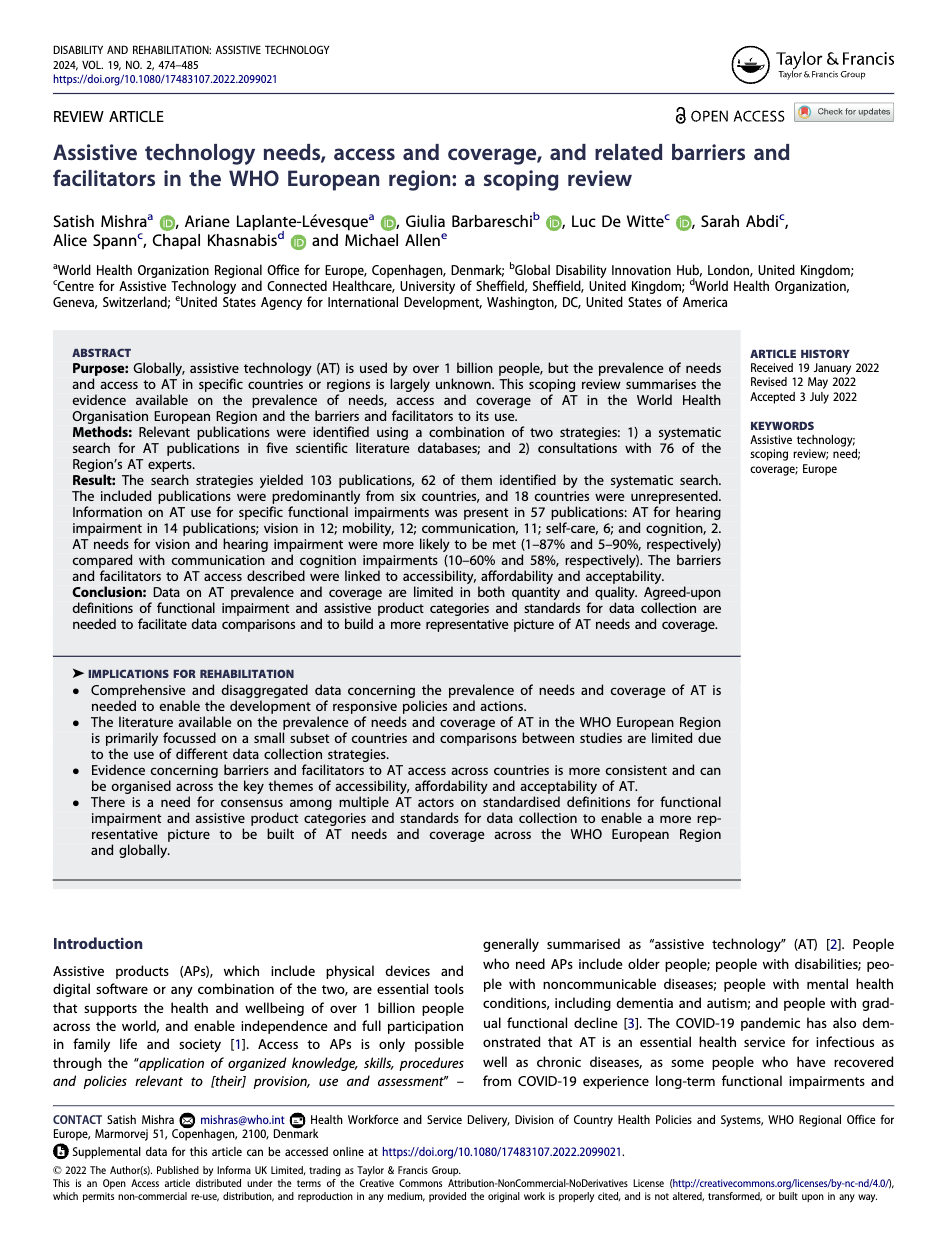
Assistive technology needs, access and coverage, and related barriers and facilitators in the WHO European region: a scoping review
Dr Giulia Barbareschi, Michael Allen, Satish Mishra, Chapal Khasnabis, Sarah Abdi, Ariane Laplante-Lévesque, Alice SpannJuly 29, 2022Academic Research PublicationsGlobally, assistive technology (AT) is used by over 1 billion people, but the prevalence of needs and access to AT in specific countries or regions is largely unknown. This scoping review summarises the evidence available on the prevalence of needs, access and coverage of AT in the World Health Organisation European Region and the barriers and facilitators to its use.